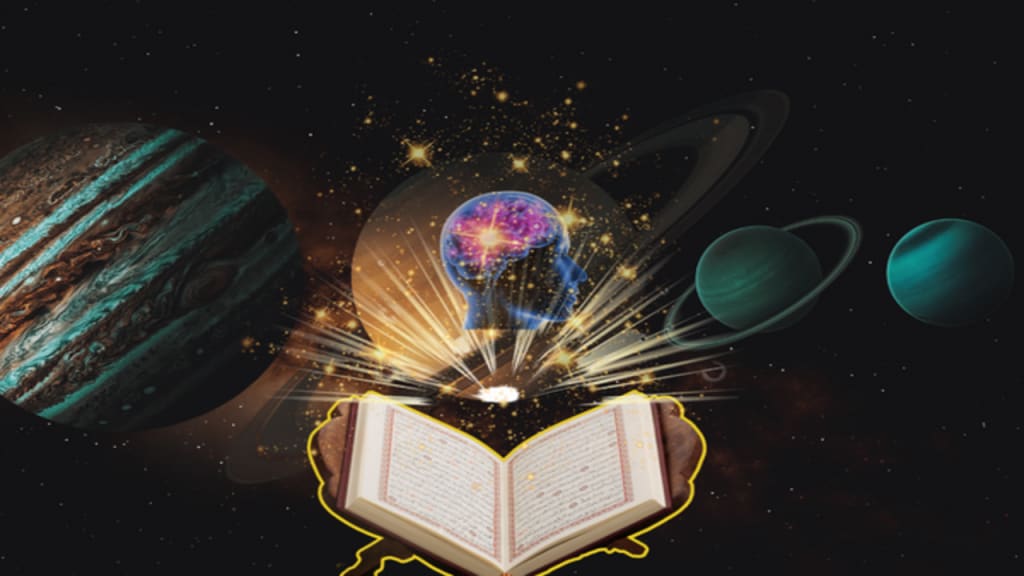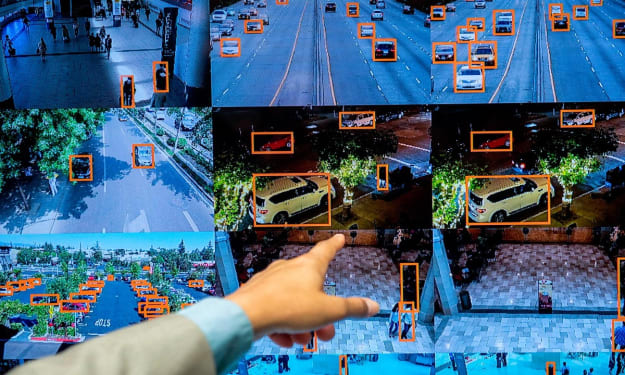Quran and Science
Exploring the Interplay between Islamic Scripture and Scientific Knowledge

Quran and Science: Exploring the Interplay between Islamic Scripture and Scientific Knowledge
The Quran, the holy book of Islam, holds a central position in the lives and beliefs of over a billion Muslims worldwide. For centuries, Muslims have found solace, guidance, and spiritual enlightenment in its verses. The Quran is not only revered for its religious teachings but has also been the subject of intriguing discussions regarding its compatibility with scientific knowledge. Many Muslims assert that the Quran contains remarkable insights that align with modern scientific discoveries. This article aims to explore the relationship between the Quran and science, examining various perspectives and highlighting notable instances of alleged scientific miracles in the Quran.
1. Historical Context:
The Quran was revealed to the Prophet Muhammad in the 7th century CE in the Arabian Peninsula. At the time, scientific inquiry was not as developed as it is today. However, Islamic scholars and theologians throughout history have endeavored to interpret the Quran in light of scientific advancements. They sought to find congruence between the teachings of the Quran and scientific principles, aiming to demonstrate that the holy book had prefigured scientific knowledge that would later be discovered.
2. Scientific Miracles in the Quran:
a. Creation and the Big Bang Theory: One of the notable areas of discussion is the Quran's description of the creation of the universe. Some Muslims believe that certain verses of the Quran parallel the concept of the Big Bang Theory, which suggests that the universe originated from a primordial explosion. Quranic verses such as "Do not those who disbelieve see that the heavens and the earth were a closed-up mass, then We opened them out?" (Quran 21:30) have been interpreted as referring to the expansion of the universe.
b. Embryology: The Quranic description of human embryonic development is often cited as another example of scientific foreknowledge. Verses like "We created man from an extract of clay, then We made him as a drop in a place of settlement, firmly fixed" (Quran 23:12-14) are thought to align with various stages of embryogenesis, including the formation of the zygote and its implantation in the uterus.
c. Mountains as Stabilizers: The Quran also mentions the role of mountains in stabilizing the Earth's crust. This idea corresponds with the scientific understanding of tectonic plates and their role in maintaining the stability of the Earth's surface. Verses such as "And We have placed within the earth firmly set mountains, lest it should shift with them" (Quran 21:31) have been interpreted as referring to this concept.
3. Perspectives on Scientific Miracles:
a. Faith-Based Interpretation: Many Muslims see the alleged scientific miracles in the Quran as evidence of its divine origin and a testament to the wisdom of Allah. They argue that the Quran's scientific accuracy is beyond the knowledge of its time and could only have been revealed by the Creator.
b. Metaphorical Interpretation: Others propose a metaphorical understanding of Quranic verses, suggesting that the scientific interpretations are subjective and not the primary intent of the text. They argue that the Quran primarily serves as a guide for moral and spiritual matters, and any scientific relevance is secondary.
c. Skeptical Viewpoint: Some skeptics challenge the notion of scientific miracles in the Quran, asserting that the interpretations are retrofitted to fit modern scientific knowledge. They argue that the Quran should be understood within its historical and cultural context rather than seeking scientific validations.
Conclusion:
The relationship between the Quran and science is a complex and multifaceted subject. While some Muslims perceive remarkable scientific insights within the Quran's verses, others adopt metaphorical or skeptical approaches. It is crucial to engage in thoughtful and respectful discussions to understand different perspectives and bridge gaps between religious beliefs and scientific inquiry. Ultimately, the interplay between the Quran and science continues to be a fascinating topic, reflecting the ongoing dialogue between faith and reason in the modern world.
About the Creator
imran khalil
In a world where words shape our perceptions, ignite our imaginations, and connect us across time and space, article writers play a crucial role in delivering informative and engaging content. Among these skilled communicators,





Comments
There are no comments for this story
Be the first to respond and start the conversation.